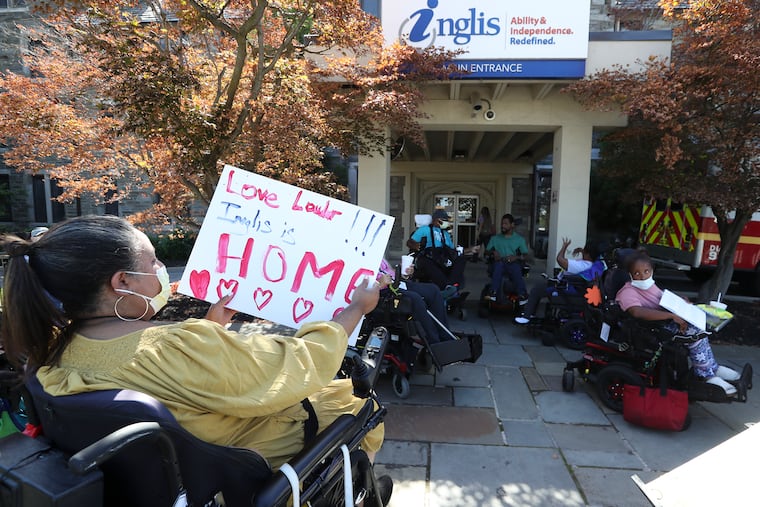Inglis House cancels nursing home sale, citing bigger-than-expected Medicaid increases
Inglis management said the Medicaid rate increase changed the nonprofit's financial picture, making it possible to continue operating the nursing home that traces its roots to 1877.

The board of the Inglis Foundation has decided to cancel the planned sale of its nursing home that serves people with physical disabilities after the Pennsylvania Medicaid program issued rate increases that were significantly higher than expected, the nonprofit said Tuesday.
“This unprecedented change in the reimbursement rates is remarkable in that it addresses, in a meaningful way, the structural rate issues that have threatened the viability of our skilled nursing facility as well as so many others in the commonwealth,” Dyann Roth, Inglis’ president and chief executive, said.
Roth said last July when the sale was announced that the anticipated 17.5% increase in Medicaid rates, which the General Assembly agreed to with strings attached to force nursing home operators to spend more on bedside care, was not enough to stave off financial decline at Inglis. Operating losses have averaged $15 million a year for the last five years, according to Inglis.
But instead of the anticipated 17.5% increase, Inglis received a 34% increase, to $580.24 per day, according to a spreadsheet posted on the website of the Pennsylvania Department of Human Services. Inglis cares for medically complex patients and will receive the second highest rates in the state, behind Fox Subacute at South Philadelphia, which cares for patients on ventilators.
Inglis officials said that even the new, higher rates won’t cover all the costs of the care at the nursing home, which has 252 beds. “However, the impact will be enough to change our financial picture such that we no longer need to pursue a sale,” James G. Logue, chair of the Inglis board, said.
The cancellation was welcome news to residents and their supporters.
“We’re very pleased. This was absolutely not necessary to put everybody through all this pain and angst,” said Frances Satoru Amagasu, an Inglis resident for more than three years and spokesperson for the Inglis House Residents Council. He thanked supporters and expressed hope that Inglis “can remain independent and take care of people like us, now and continuing on for the next 150 years.”
Uri Kahanow, director of acquisitions for Tryko Partners LLC, which had agreed to pay $22.3 million for the nursing home and an apartment building on the same campus, said the Brick, N.J., company supported the decision by the Inglis board.
Inglis said it would withdraw its Philadelphia Orphans’ Court petition seeking approval of the sale. Such petitions typically attract little attention, but because of Inglis’ long history, the deep engagement of families whose loved ones live there, and a tradition of activism by residents, the sale drew formal opposition in court.